Rwanda remembered the start of the genocide on April 7, as they have done every year since 1994. Commemorations are held in many countries, often spread out over a long period. In the 19 years following the genocide, the hunt for the perpetrators of crimes against humanity has never ceased. These searches are carried out not only in Rwanda but worldwide by associations of survivors, their families, their friends and all those who fight to ensure the perpetrators of such tragedies do not go unpunished.
In France, the Collective of Civil Plaintiffs for Rwanda (CPCR) is one of the organizations that fight against impunity. Its Chairman, Alain Gauthier, agreed to answer some of our questions.
Global Voices (GV): What are the reasons that have led French people like you to create the Collective of Civil Plaintiffs for Rwanda (CPCR), and who are its members?
Alain Gauthier (A.G.): The idea of creating the CPCR came to my wife and myself in 2001, at the end of the first trial held in Belgium. We participated in a large part of this process because it involved genocide in the region of Butare, Rwanda, which is where my wife was born. One of the victims was a friend. Some of the victims were family members. Furthermore, my brother-in-law was part of the small group, the Collective of Civil Plaintiffs, that ensured the trial would take place in Brussels. My wife, Dafroza, lost a large part of her family in Rwanda in 1994. There are so many reasons. In the spring of 2001, we decided upon our return to France to create the CPCR, the Collective of Civil Plaintiffs for Rwanda, with some friends. The original founding members were mostly Rwandans living in France. This first group gradually disintegrated but friends and other French people interested in Rwanda who were perturbed by the presence of genocide suspects in France joined us. There are now between 150 and 200 members.
GV: Do you maintain relationships with similar organisations in Rwanda and elsewhere?
A.G.: We have maintained ties with our friends in Belgium, although the Collective of Civil Plaintiffs who inspired us in Brussels is no longer really active. In France, we have collaborated with associations that filed complaints before the CPCR existed, but complaints that I would call “dormant”; that is to say that the judges in charge of the dossiers were not very active or that the complaints were lacking in evidence or witnesses. The associations are Survie, the International Federation for Human Rights and the Rwandan Community of France. The International League against Racism and Anti-Semitism (LICRA) [fr] also collaborated with us as a civil party in a large number of cases.
In Rwanda, we have links with the National Commission for the Fight against Genocide (CNLG), but we work mostly with individuals rather than associations. In fact, to my knowledge, there are very few organisations in the world that are like ours.
GV: What are the activities that have been carried out so far?
A.G.: If at first our work was to “feed” the existing six complaints, we were very quickly alerted to the presence of many genocide suspects in France and our work has focused on the search for witnesses in Rwanda. We go to Rwanda whenever we can to collect statements from both victims and killers and we prepare records that we translate and give to our lawyers who are responsible for drafting the complaints before they are submitted. In 12 years we have been able to submit 19 new complaints which are all currently in the hands of the investigating judges of the new “crimes against humanity pole”, recently created by the Paris Court of First Instance. This collection of statements is essential to our work.
GV: On the CPCR's blog, the collective says civil cases (alone or with other non-governmental organisations) have been filed in a number of French cities. Could you specify the number and the results?
A.G.: Currently there are about 25 complaints in the hands of French judges, the last 19 of which were initiated by the CPCR. No trials have yet taken place, but recently the judges decided to bring the first Rwandan accused of genocide before a criminal court. The accused, Pascal Simbikangwa, is a former captain of the Rwandan army and is currently incarcerated at Fresnes prison. He was arrested in Mayotte three or four years ago and then transferred to Paris. This should be the first trial held in France. It will be an historical process.
Two other genocide suspects are also in prison and could well be the next to be held to account judicially. They are Octavien Ngenzi, who was also arrested after being found in Mayotte, and Tito Barahira, recently arrested in Toulouse, where he was also forced to come out of hiding.
GV: Have there already been trials held in other countries for those accused of participating in the genocide?
A.G.: Other countries such as Belgium, Switzerland, Canada, Germany and the Scandinavian countries have organised trials. For a long time in France there have been political barriers. The genocide was committed at the time of the coalition and neither the left nor the right wanted to organise trials. The role of the French state in the genocide is still not very clear.
GV: Can you expand on that?
A.G.: President François Mitterrand and the French government of 1994 had supported the Rwandan president Juvénal Habyarimana before the genocide, they came to the president's rescue in 1990, they then supported the government in power during the genocide following the death of President Habyarimana, and they allowed perpetrators of the genocide to take refuge in Zaire during the French Opération Turquoise at the end of the genocide. So there were many reasons why nobody in France wanted to hold a trial at the risk of opening Pandora's box. A trial would not fail to mention the role of the French state.
In addition, the French justice system had not made it possible for genocide suspects to be taken to trial. It was not until the creation of the Crimes against Humanity office of the Tribunal de Grande Instance de Paris (Paris Regional Court) that the French justice system moved up a gear. The three appointed full-time judges and the investigating police officers frequently address themselves to Rwanda in letters rogatory. It was about time… I must say that the genocide of the Tutsis and the prosecution of perpetrators of genocide are not topics that really interest our citizens.
GV: How are the alleged perpetrators identified?
A.G.: We are virtually the only ones to track down the perpetrators on French soil. If the CPCR or other associations had not filed complaints, no suspected perpetrators of genocide would so far have been prosecuted. The Public Prosecutor has never himself decided to pursue genocide suspects. As a diplomat recently said to me, “The judges prefer to prosecute offenders causing problems for neighbourhood life rather than perpetrators of genocide who live in peace, without bothering anyone”. These comments are shocking but true.
Genocide suspects have gone back to square one in France: they help out with charitable organisations, they are good neighbours, good family men, good husbands, good doctors… It is difficult to assess their complicity, and especially difficult to prove anything. Some are, surprisingly, protected by the church in France. Some genocide suspects are former Rwandan soldiers. How did they get to France? Who helped them? Perhaps future trials will help us to see a little more clearly.
GV: Regarding reconciliation, apart from Gacaca courts, what has been done and what are the obstacles?
A.G.: Reconciliation is a difficult topic. The Gacaca courts are probably allowed to know what really happened on the hills or in the cities. They had the opportunity to apply for pardons. But for me, forgiveness is a personal matter. If a killer asks me for forgiveness, I can forgive him. But I can also refuse. In whose name or for what do I grant forgiveness? The victim is no longer here. Can I forgive in his name? Reconciliation should be a national issue.
Rwandans are condemned to live together, especially in the hills. Each person must realise what they can and cannot do to one another. If the request for pardon is a tactic to avoid living on the outskirts of society, if repentance is not sincere (and how can we know?), reconciliation will not happen. And yet to rebuild, to live in peace (and not just superficially), true reconciliation is essential. But it will take several generations to get there.
The trauma lives deep inside the victims. But it is also deep within the killers. How is it possible to go on living when we have committed such crimes? And how can we go on living when we are the victims of such crimes (massacres, rape, humiliation…)?

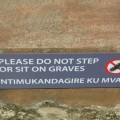
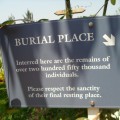

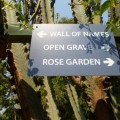

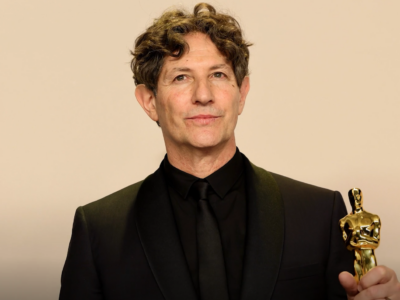
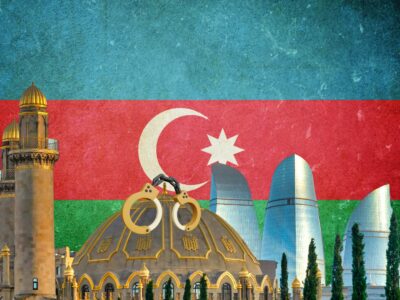



1 comment